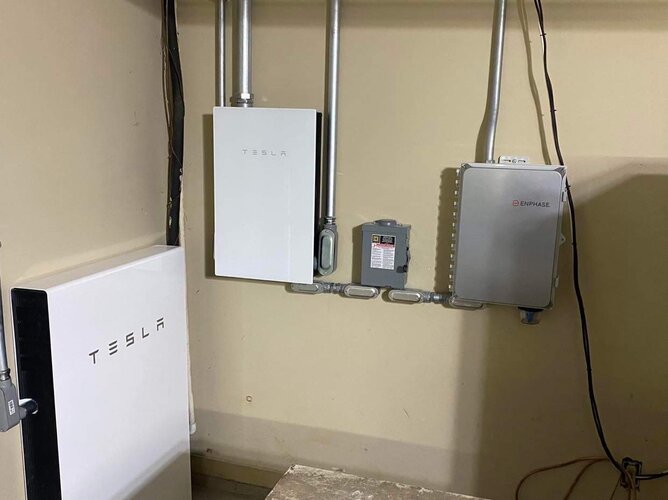Offline
I did a search for solar before posting. Didn't find much. We are considering "going solar" and I wanted to see if anyone has any thoughts experiences, drawbacks, etc. I am the person that does a lot of research before jumping in, but "I don't know what I don't know".
I have asked about, and received positive feedback (from the solar company) on the following:
hail resistance - supposedly highly resistant to hail damage
secure roof mounting - up to cat 5 rated
maintenance - no routine cleaning or maint required
efficiency degradation - warranted not to exceed 0.59% per year, so when these are paid off in 20 yrs, they should have lost max 12% energy production efficiency.
Solar Offset - the goal is to replace 100% of power company use with solar. My proposed set up is estimated to replace 102% of my total usage over the last 12 months. PLUS, I am considering replacing my water heater and HVAC at the same time to boost efficiency.
I confirmed the eligibility of 26% solar tax rebate.
Includes a sunlight backup inverter, which feeds 4-8 circuits in the event of a power service outtage during the day. Industry standard is to shut off electricity transmission from the panels in the event of an area service outtage. Protects linemen and systems since solar panels backfeed the grid. My personal opinion is that the cutoff could be put on the service side, isolating the house from the grid so a home can still get power from their panels, but lobbyists have more money than me.
I've also confirmed that using my gas generator (I have an junction outlet to backfeed the house) during an extended outtage, like after a hurricane, won't damage any equipment.
I need to confirm the various warranties because I don't see them in writing on the proposal. There is roof penetration warranty, manufacturer, install, etc.
Edit: Also, my proposed system uses micro inverters instead of 2 central inverters.
I have asked about, and received positive feedback (from the solar company) on the following:
hail resistance - supposedly highly resistant to hail damage
secure roof mounting - up to cat 5 rated
maintenance - no routine cleaning or maint required
efficiency degradation - warranted not to exceed 0.59% per year, so when these are paid off in 20 yrs, they should have lost max 12% energy production efficiency.
Solar Offset - the goal is to replace 100% of power company use with solar. My proposed set up is estimated to replace 102% of my total usage over the last 12 months. PLUS, I am considering replacing my water heater and HVAC at the same time to boost efficiency.
I confirmed the eligibility of 26% solar tax rebate.
Includes a sunlight backup inverter, which feeds 4-8 circuits in the event of a power service outtage during the day. Industry standard is to shut off electricity transmission from the panels in the event of an area service outtage. Protects linemen and systems since solar panels backfeed the grid. My personal opinion is that the cutoff could be put on the service side, isolating the house from the grid so a home can still get power from their panels, but lobbyists have more money than me.
I've also confirmed that using my gas generator (I have an junction outlet to backfeed the house) during an extended outtage, like after a hurricane, won't damage any equipment.
I need to confirm the various warranties because I don't see them in writing on the proposal. There is roof penetration warranty, manufacturer, install, etc.
Edit: Also, my proposed system uses micro inverters instead of 2 central inverters.
Last edited:


